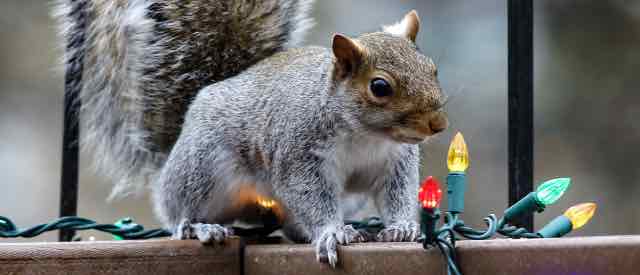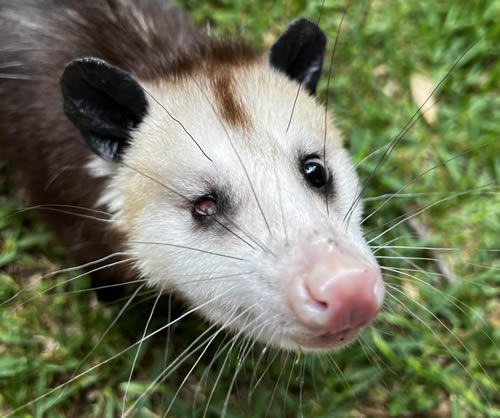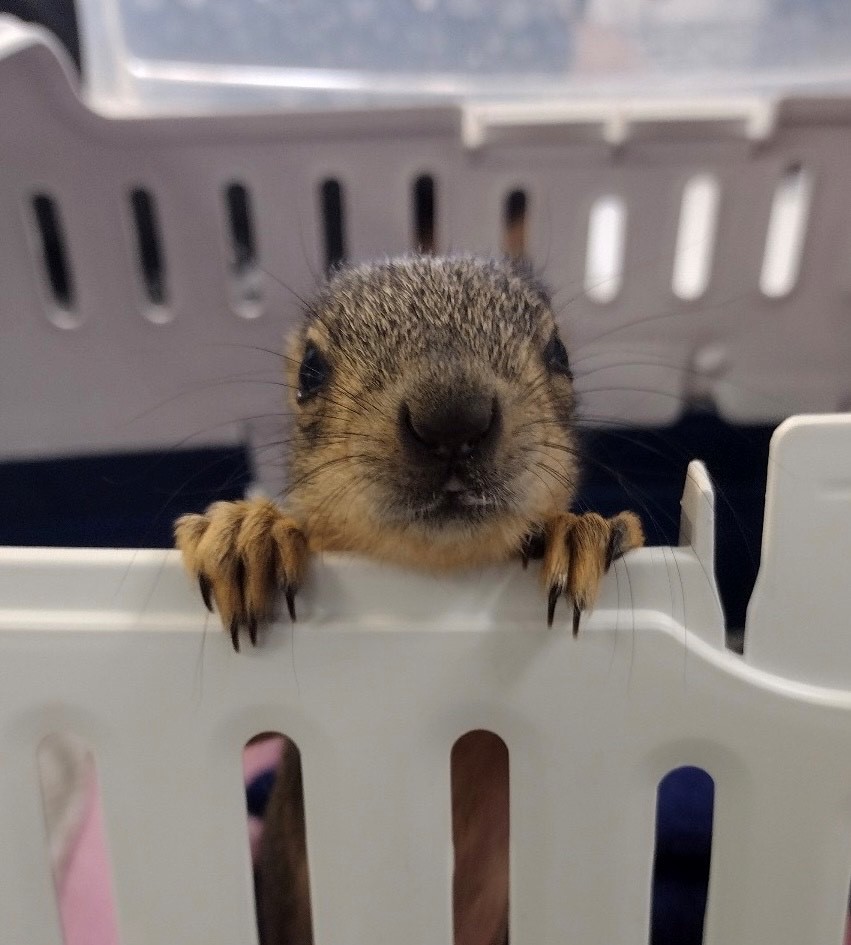By Deb Near, ACP Supervisor
Believe it or not, the holidays are almost upon us, bringing winter along with them. This means wildlife will be trying to find ways to keep warm and scrounge for food. As a result, you may find them venturing closer to human residences.
Some things can be done to keep wildlife safe at all times of the year, like not making use of harmful deterrents such as glue traps. But there are also steps that become more important during the cooler, leaner months.
Bird feeders are a great way to help the local wildlife but keep them out of reach of potential predators such as dogs and outdoor cats. Place bird feeders close to a bush or tree so that they can have quick, accessible cover for protection against predators such as hawks and eagles. Food scraps that you throw out with your garbage will invariably attract hungry wildlife; opossums especially tend to crawl into trash cans and be unable to get back out. Therefore, it is important to make sure all trash cans have their lids securely fastened and garbage bags tightly sealed.
Wildlife will be looking for a place to spend the cold winter. Here are some steps to take to assure your attic isn’t one of those places. The earlier you take these steps, the less likely you will have unwanted visitors; visitors who may start a family in the spring.
- Inspect the exterior of your home. Most animals enter attics through small holes or man-made openings such as vents and chimney pipes. Larger animals will even bite and claw through weak spots in the exterior to create an entrance to the attic. The most effective way to keep animals out of your attic is to walk the perimeter of your home and find and eliminate any vulnerable areas in your home's exterior.
- Fix holes in your roof. Look for any holes in the roofing or between the roof and the siding or brick. Lift up the damaged shingle and the ones surrounding it. Remove the nails that are underneath with a pry bar then slide the damaged shingles out. After patching the hole in the roof, replace the shingles with new ones, hammer the nails back in, and secure everything by covering the nail heads in roof cement. Keep in mind that even small holes can be a potential problem because squirrels can fit through holes as small as 1.5 inches (3.8 cm) in diameter, and bats can get through gaps as small as .38 inches (.95 cm).
- Install vent covers. Get ½ inch (1.27 cm) or ¼ (0.64 cm) inch hardware cloth from a box or hardware store. Make sure that the hardware cloth is made of wire, not mesh. Securely fasten the cloth over any vents on the roof that may provide access to the attic. Don’t forget to install covers on your soffit vents as well. Your soffit vents are located on the underside part of the roof that hangs over the sides of your home.
- Install a chimney cap. First, inspect the chimney with a flashlight and look for any signs of animal inhabitation. Once you’re sure there are no animals inside the chimney, install an animal-proof chimney cap that will allow smoke to escape without giving animals an entrance.
- Trim or remove tree limbs and branches. If you have trees that extend over your roof, you may want to trim back the branches to restrict access to the roof. Remove larger branches with a pruning saw or chain saw. Make sure that you trim any branches that are within 8 feet of your home to keep squirrels from being able to jump to the roof.
There are also things specific to the holiday season that can be done to keep our furry and feathery friends safe and well.
Certain species of plants that are popular during the holidays should be kept away from animals because they have the potential for making them ill, sometimes fatally so. Examples are holly, mistletoe, poinsettias, and certain species of lily.
Be smart about outdoor decorations. When stringing your Christmas lights, make sure to keep them at least six feet above the ground. Don’t loosely drape them over bushes, especially ones with netting, but instead wrap them tightly around posts and trees. This will prevent birds, especially ones that hunt at night, from becoming trapped. Don’t forget that this will be the breeding season for animals such as deer and that their antlers can become entangled on such loose decorations as well.
All of this is to say: animals will become more vulnerable as they come out of their hiding places while seeking food and shelter, so let’s help them out the best we can!



